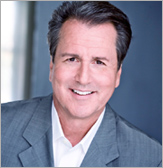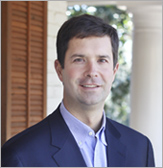Ford’s Six Cylinder Turnaround
 When Alan Mulally, became the young CEO of Ford Motor Company he said, “We have been going out of business for forty years.” And, he was right. A succession of ineffective Ford family members had put their company in the bulls-eye of bankruptcy to the tune of $24 billion dollars. Mulally, who had spent his entire 37-year career at Boeing Aircraft, not only erased the debt (in eight years) but he made Ford a world beater again. But how did he do what generations of Ford relatives couldn’t? First, he had to squash the stigma that he didn’t know the car business. Long-time Ford executives quizzed him, “How are you going to tackle something as complex and unfamiliar as the auto business when we are in such tough financial shape?” Mulally responded, “An automobile has about 10,000 moving parts, right? An airplane has two million, and it has to stay up in the air.” End of discussion.
When Alan Mulally, became the young CEO of Ford Motor Company he said, “We have been going out of business for forty years.” And, he was right. A succession of ineffective Ford family members had put their company in the bulls-eye of bankruptcy to the tune of $24 billion dollars. Mulally, who had spent his entire 37-year career at Boeing Aircraft, not only erased the debt (in eight years) but he made Ford a world beater again. But how did he do what generations of Ford relatives couldn’t? First, he had to squash the stigma that he didn’t know the car business. Long-time Ford executives quizzed him, “How are you going to tackle something as complex and unfamiliar as the auto business when we are in such tough financial shape?” Mulally responded, “An automobile has about 10,000 moving parts, right? An airplane has two million, and it has to stay up in the air.” End of discussion.
Like the phrase from a past Ford marketing campaign, Mulally knew that “Job One” was to get Ford off financial life-support. He arranged to have Ford borrow $23.6 billion by mortgaging all of Ford’s assets. When the US Government held bailout hearings to American Automobile Manufacturers, Ford was the only member of the “Detroit Three” who didn’t take a loan. And when Mulally and other industry leaders were criticized for flying to the hearings in their private jets. Mulally sold all but one of Ford’s private jets and started road-tripping from Detroit to Washington in a Ford-built hybrid electric vehicle. Mulally then did the unthinkable. He suspended dividends to shareholders.
Back in Detroit, Mulally had to get every worker to believe in “The Way Forward.” He executed a restructuring plan through positive servant leadership. His personal humility rallied the assembly line, the IT department, the middle managers, and the Board of directors. He was able to convince everyone that there is always a way forward, and that he could be trusted to lead the team. He had continually reinforced the idea that everyone is part of the team and each person’s contribution is respected and valued; therefore, everyone should participate in reaching the goal. Each employee was given a card to carry with them that detailed the business plan on one side, and the culture and expected behaviors on the other.
Mulally also listened to their ideas.
In the old days of Ford, if an employee saw a problem and stopped production, a manager would have jumped down their throat and questioned their judgment. Under Mulally, managers were retrained to explore the problem and asked how the employee can be helped to resolve it.
Mulally got executives to re-imagine the future of Ford through actual waging war games. He encouraged every employee to see Ford not simply as a car company, but as a “mobility company.” Mulally was changing the internal culture and fostering collaboration. He built a workplace where innovation began to flourish.
Mulally became well known for reeling in labor costs. In 2008, Mulally achieved what many believed to be impossible by negotiating four new agreements with the United Automobile Workers, which brought down labor costs from $76/hour to $55/hour.
The company saw its first profitable quarter in over two years.
When anyone asks about his “servant” leadership style Mulally says. “Wow, a leader of an empire like Ford looks at himself as a servant, and considers it an honor to serve others? At the most fundamental level, it is an honor to serve – at whatever type or size of organization you are privileged to lead, whether it is a for-profit or nonprofit. It is an honor to serve. Starting from that foundation, it is important to have a compelling vision and a comprehensive plan.”
Mulally left the company last year with a legacy that fueled Ford Motor Company to go from a record multibillion-dollar loss in 2006 – to five consecutive years of annual profits. But this isn’t just a story about making money. When he came to Ford, Mulally may not have known the car business but he knew how to inspire people to believe they could achieve greatness from THEIR ideas – not just by a command and control directive from The Boss.
Ross Shafer is the co-author of the new book, ABSOLUTELY NECESSARY – Bulletproof Tactics for Putting Yourself in High Demand. He is also the author of Nobody Moved Your Cheese, Are You Relevant, Grab More Market Share, and The Customer Shouts Back. Ross is a busy keynote speaker, author, and Emmy winner for his work as a comedian, talk show host, and writer. Learn more about Ross at: www.RossShafer.com
Filed in: Relevant Report









